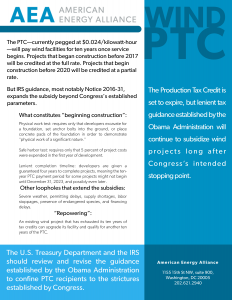WASHINGTON – American Energy Alliance has released the results of a nationwide survey of 1002 likely voters (margin of error, 3.1%) conducted in early June on the topic of electric vehicles. The findings include:
- A sizable majority of voters (72%) said they did not trust the federal government to make decisions about what kinds of cars or transportation technologies should be subsidized or mandated.
- Despite a generally positive attitude towards electric vehicles, most voters are resistant to the idea that they should pay for people to buy electric vehicles. About two-thirds (67%) of respondents thought that they should not pay for people to buy electric vehicles.
- There is resistance to the idea that the cost of charging and other electric vehicle infrastructure should be socialized across the rate base. Almost 7 in 10 respondents (69%) indicated that electricity customers should not be forced to pay for charging stations.
- Consistent with other research we have done, about 80% of the respondents indicated that they prefer to make their own decisions about what kinds of cars or fuels they should buy and use.
- With respect to the CAFE mandate, most voters (51%) think that it is unfair that those who purchase larger vehicles subsidize those who purchase smaller cars, and less than (just 45%) favor the program.
Thomas J. Pyle, President of the American Energy Alliance, issued the following statement:
“It should come as no surprise that Americans continue to believe that they, not bureaucrats or the elites, should be making the decisions relevant to their lives. It is good to reaffirm that people don’t really want to pay for the toys of the rich. Those who seek to expand tax credits for electric vehicles should be aware of how the issue is viewed in the public’s eyes.”
Topline results can be viewed here.
###
For media inquiries, please contact Erin Amsberry
[email protected]
202.621.2947



